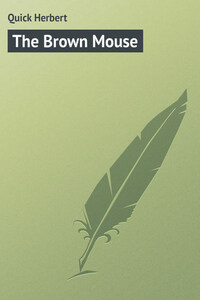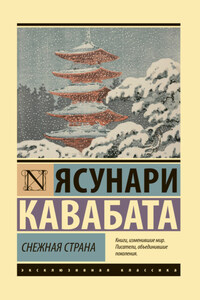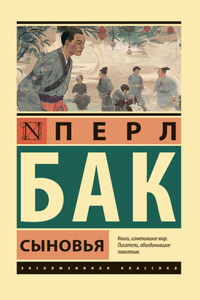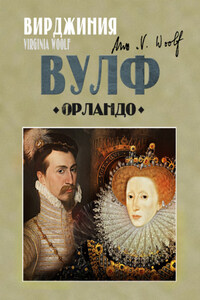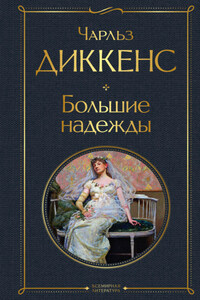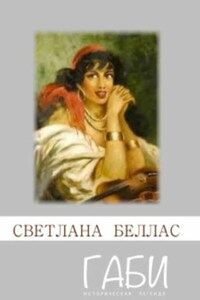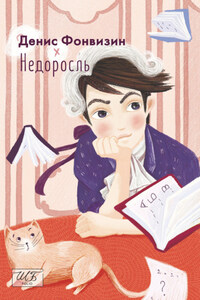CHAPTER I
A MAIDEN’S “HUMPH”
A Farm-hand nodded in answer to a question asked him by Napoleon on the morning of Waterloo. The nod was false, or the emperor misunderstood – and Waterloo was lost. On the nod of a farm-hand rested the fate of Europe.
This story may not be so important as the battle of Waterloo – and it may be. I think that Napoleon was sure to lose to Wellington sooner or later, and therefore the words “fate of Europe” in the last paragraph should be understood as modified by “for a while.” But this story may change the world permanently. We will not discuss that, if you please. What I am endeavoring to make plain is that this history would never have been written if a farmer’s daughter had not said “Humph!” to her father’s hired man.
Of course she never said it as it is printed. People never say “Humph!” in that way. She just closed her lips tight in the manner of people who have a great deal to say and prefer not to say it, and – I dislike to record this of a young lady who has been “off to school,” but truthfulness compels – she grunted through her little nose the ordinary “Humph!” of conversational commerce, which was accepted at its face value by the farm-hand as an evidence of displeasure, disapproval, and even of contempt. Things then began to happen as they never would have done if the maiden hadn’t “Humphed!” and this is a history of those happenings.
As I have said, it may be more important than Waterloo. Uncle Tom’s Cabin was, and I hope – I am just beginning, you know – to make this a much greater book than Uncle Tom’s Cabin. And it all rests on a “Humph!” Holmes says,
“Soft is the breath of a maiden’s ‘Yes,’
Not the light gossamer stirs with less.”
but what bard shall rightly sing the importance of a maiden’s “Humph!” when I shall have finished telling what came of what Jennie Woodruff said to Jim Irwin, her father’s hired man?
Jim brought from his day’s work all the fragrances of next year’s meadows. He had been feeding the crops. All things have opposite poles, and the scents of the farm are no exception to the rule. Just now, Jim Irwin possessed in his clothes and person the olfactory pole opposite to the new-mown hay, the fragrant butter and the scented breath of the lowing kine – perspiration and top-dressing.
He was not quite so keenly conscious of this as was Jennie Woodruff. Had he been so, the glimmer of her white piqué dress on the bench under the basswood would not have drawn him back from the gate. He had come to the house to ask Colonel Woodruff about the farm work, and having received instructions to take a team and join in the road work next day, he had gone down the walk between the beds of four o’clocks and petunias to the lane. Turning to latch the gate, he saw through the dusk the white dress under the tree and drawn by the greatest attraction known in nature, had re-entered the Woodruff grounds and strolled back.
A brief hello betrayed old acquaintance, and that social equality which still persists in theory between the work people on the American farm and the family of the employer. A desultory murmur of voices ensued. Jim Irwin sat down on the bench – not too close, be it observed, to the piqué skirt… There came into the voices a note of deeper earnestness, betokening something quite aside from the rippling of the course of true love running smoothly. In the man’s voice was a tone of protest and pleading…
“I know you are,” said she; “but after all these years don’t you think you should be at least preparing to be something more than that?”
“What can I do?” he pleaded. “I’m tied hand and foot… I might have …”
“You might have,” said she, “but, Jim, you haven’t … and I don’t see any prospects…” “I have been writing for the farm papers,” said Jim; “but …”
“But that doesn’t get you anywhere, you know… You’re a great deal more able and intelligent than Ed – and see what a fine position he has in Chicago…”
“There’s mother, you know,” said Jim gently.
“You can’t do anything here,” said Jennie. “You’ve been a farm-hand for fifteen years … and you always will be unless you pull yourself loose. Even a girl can make a place for herself if she doesn’t marry and leaves the farm. You’re twenty-eight years old.”
“It’s all wrong!” said Jim gently. “The farm ought to be the place for the best sort of career – I love the soil!”
“I’ve been teaching for only two years, and they say I’ll be nominated for county superintendent if I’ll take it. Of course I won’t – it seems silly – but if it were you, now, it would be a first step to a life that leads to something.”
“Mother and I can live on my wages – and the garden and chickens and the cow,” said Jim. “After I received my teacher’s certificate, I tried to work out some way of doing the same thing on a country teacher’s wages. I couldn’t. It doesn’t seem right.”
Jim rose and after pacing back and forth sat down again, a little closer to Jennie. Jennie moved away to the extreme end of the bench, and the shrinking away of Jim as if he had been repelled by some sort of negative magnetism showed either sensitiveness or temper.
